Forget door-to-door, how charities use your Facebook likes to target you
COVID-19 has changed face-to-face charity fundraising, now agencies like Fansdonate use social media to target donors.
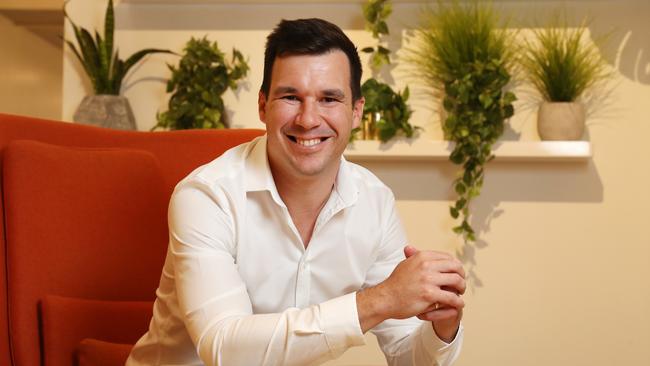
QWeekend
Don't miss out on the headlines from QWeekend. Followed categories will be added to My News.
In a time not very long ago, charity workers stood outside shopping centres and on city-centre street corners or rapped at your front door.
Have you noticed they are gone?
The days of cold-calling charity work – in reality it was only a year or so ago – now seems implausible. A lot has happened in the world since then.
With pandemic restrictions on physical contact, social distancing and handling cash, charities have had to radically change the way they operate.
Traditional face-to-face and fundraising events are no longer possible as a way to raise donations.
Instead, the charity industry has rapidly gone hi-tech, turning to intelligent digital interaction on social media platforms to more effectively target donors. And the changes are here to stay. COVID-19 has changed the way charities operate forever.
Pandemic affecting critical charity donations
Doctors reveal their struggle with telling patients the worst possible news
Since 2014, Brisbane-based company Fansdonate has been at the forefront of charities transitioning to digital fundraising but has watched as the pandemic has accelerated digital adoption by several years.
Last year saw the agency more than double its staff and increase its charity clients from seven to 32, with some of Australia’s leading charities on its books such as Red Cross Australia, Heart Foundation, CareFlight and Royal Flying Doctor Service.
Fansdonate launched operations in New Zealand in April, the UK in September and Singapore in November.
Founder Steve Thirgood, 41, of Ashgrove, in Brisbane’s inner northwest, says there has been an irreversible shift in fundraising behaviour.
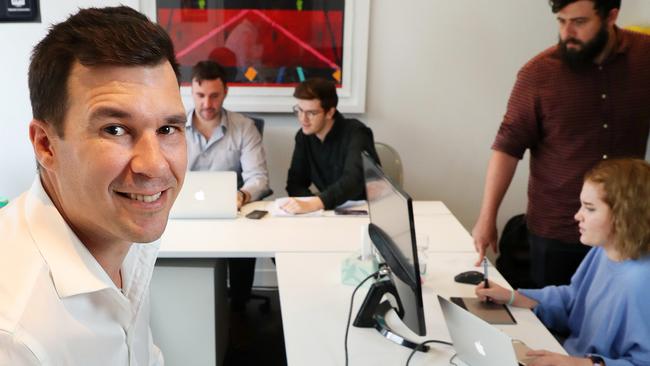
“Face-to-face fundraising has always been seen as the most important avenue to raise funds for charities,’’ he says.
“It’s always been successful because of the one-on-one interaction with someone. From an industry perspective, that has always been the standard, the way it’s always been done.
“What COVID presented to the charity industry was an opportunity to realise that they had not treated digital very seriously.
“In 2020, we were able to get almost 300,000 people introduced to our charities. In 2019, it was 100,000. That was the impact of COVID for us.’’
So how do charities find potential donors in the digital world? If you are on social media, your every click, like or comment is being watched.
Notice that ad for something that appeals to you popping up in your feed? Or that Facebook quiz, petition or poll? Chances are you have liked a Facebook page, clicked on a link or perhaps shared a post about a topic, product or issue that has piqued your interest.
“The success of the campaigns come from thousands and thousands of engagements, likes and shares from people’s Facebook pages,’’ Thirgood says.
“Compared to face-to-face fundraisers on the street … here we have an audience who actively promote what they love and don’t love on their social media.
“Face-to-face fundraisers still look for a specific demographic – for example a 45-year-old-plus female – so they still do their targeting, they just do it with their eyeballs.
“The only difference now is that we are looking at datasets to try to find that same person.’’
Thirgood says prospective donors are found through “smart targeting’’ – placing digital ads based on what charities a person likes and also demographic markers such as where a person lives, how old they are, even what news sites they look at.
Privacy settings apply so if you are on your private Facebook page and you talk about a charity, no one will see that.
But if you like content or interact with
a public page, that information is stored and
accessed by advertisers. Thirgood’s team, as one example, might create an engaging digital Facebook quiz. There’s one, for example, that encourages people to answer a couple of questions to find out what type of animal they are – maybe a wombat, a quoll or a type of bird. It’s fun and it’s made for sharing with friends.
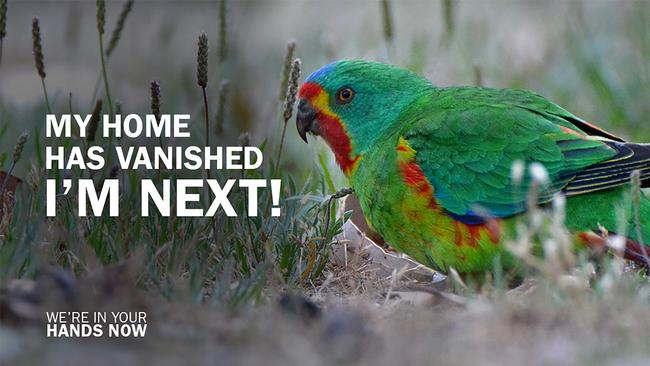
From this first social media interaction, potential donors then progress through “a journey of engagement’’ from a charity’s website, followed by emails and, ultimately, a phone discussion with a telemarketer.
“As soon as someone likes a quiz, they might also have to put in their personal pledge for the environment. Those sorts of activities are then shared within their Facebook profile,’’ Thirgood says.
“Anyone who advertises on digital has access to that information. It’s how you are able to target the right audience.
“Then you are only talking to people who are already warm to our cause and have a propensity to want to listen to your message.’’
Executive manager for fundraising and engagement at Bush Heritage Australia, Melinda Warnecke, says her organisation was an early adopter of digital technology, partnering with Fansdonate in October 2018. In hindsight, it was brilliant timing that allowed everything to be nicely in place come the pandemic panic of early 2020.
Bush Heritage, an independent not-for-profit charity that buys and manages land to conserve and protect Australia’s native species, has seen an incredible boost to its number of regular supporters.
Since collaborating with Fansdonate and running digital campaigns, it has seen more than 2500 new “regular givers’’ who donate each month.
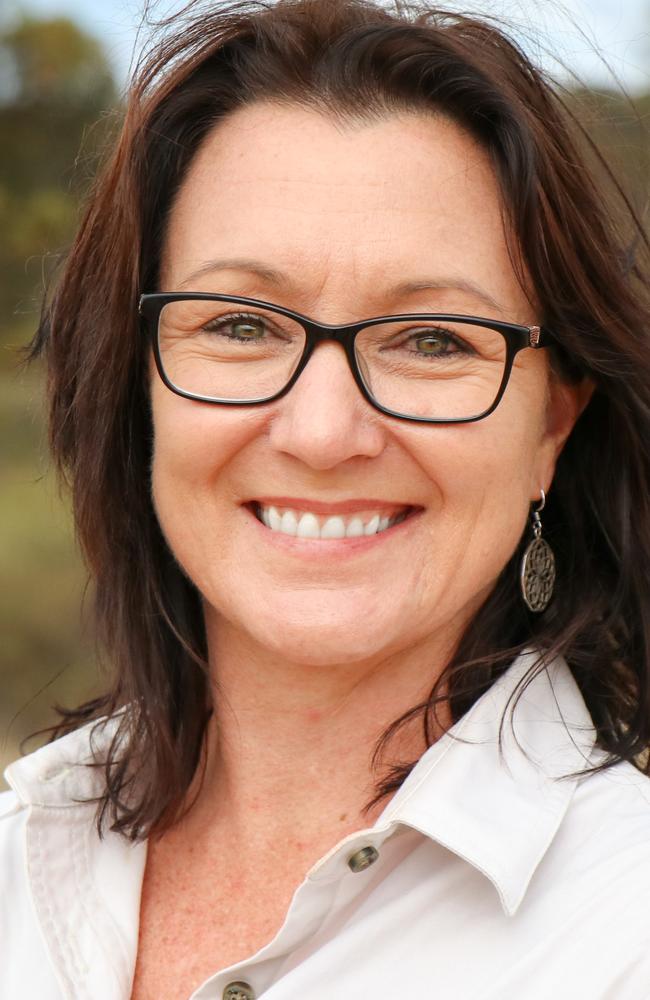
“This is as a direct result of running the campaigns digitally together with Fansdonate,’’ Warnecke says.
“The average gift for those 2500 regular givers has been about $25 per month, so that is $62,500 a month, $750,000 a year or $3.75 million over five years, which is generally an accepted average time frame.
“COVID kind of forced online habits for lots of things and our donors embraced technology and online giving in a way they never have before.
“We had a 46 per cent jump in our
online donations in November 2020 from the same time in 2019. It’s incredible …
it’s permanently changed the way charities operate.
“For those charities that didn’t progress or pivot quickly into digital fundraising … who kept waiting for the pandemic to be over, they haven’t done so well.’’
Warnecke, who is based in Melbourne, says the writing was on the wall for traditional methods of fundraising.
The costs of employing street fundraisers no longer made sense in terms of being a good use of donor funds, especially with a high turnover of the staff, typically aged between 18 and 25, who were paid hourly. There was also considerable effort and funds put into training new staff on key charity messages.
“Our average donor base is also 40 years and above,’’ Warnecke says.
“So when a young person comes up to talk about our cause, it’s not psychologically within your lookalike network so it was really difficult.
“We were already beginning to move away from street fundraising because we were already seeing a lot stronger engagement through our digital channels.
“We are very careful and transparent about what information we keep. We don’t hide behind any marketing tricks.
“What Fansdonate was offering was definitely before its time.
“We jumped on board as a bit of a first-mover advantage – an early adopter – and went from there. It was exactly what we were looking for and we went all in and gave it a red-hot go.’’
Barnardos Australia, a leading non-government child protection charity that supports children to recover from abuse and neglect, also enlisted Fansdonate during the pandemic.
The charity’s senior digital growth manager Adnan Shahzad says the pandemic created a new set of pressures within society for vulnerable children and their families, making it a time when the charity actually needed to increase its protection.
“We needed to move quickly onto digital platforms to enlist the wider Australian public to make regular donations to support our critical services,’’ Shahzad says.
With positive results and “tangible outcomes’’, Barnardos New Zealand are now also partnering with the agency.
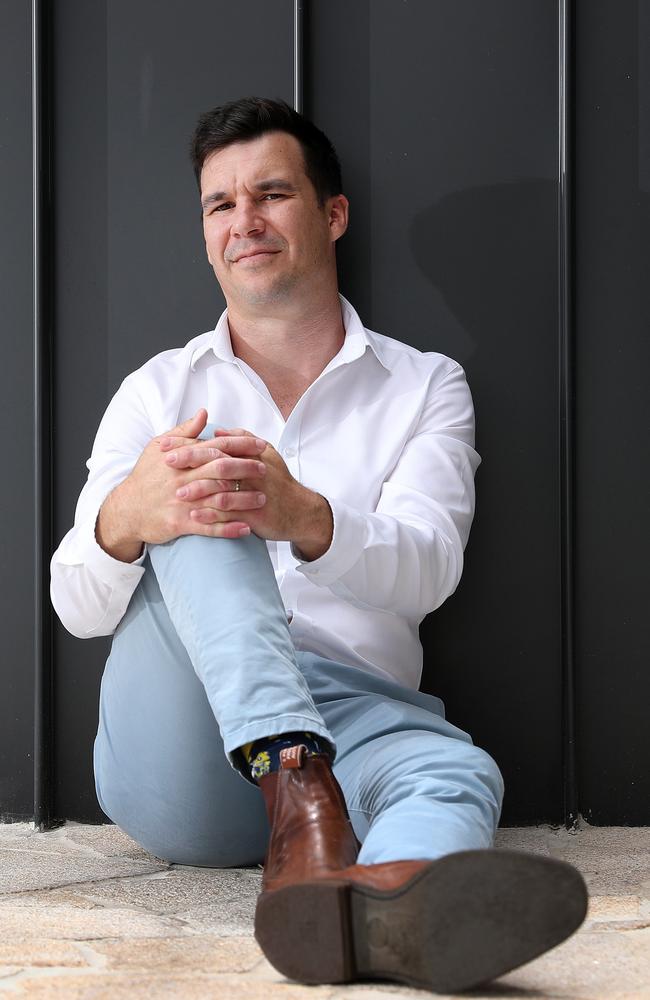
Thirgood says the best fundraising outcomes for clients are based on building trust with someone who has a pre-existing interest in a topic.
“We’re not after a short-term, reactive audience,’’ he says.
“Social media in Australia is quite vibrant. We are looking for people who genuinely care about a topic or an issue so we can build a relationship with them.
“Charities are only viable if they are able to build a member base that sticks with them for the long-term.’’
At the end of the day, Thirgood says it’s not his agency’s aim to interrupt someone’s day or promote online outrage about an issue or cause.
Rather it’s simply “reading a person and knowing what they care about’’ and then “taking them on an education journey’’ about a particular issue.
His work, he says, is like “joining a conversation that is already there’’.
“If you know what a person cares about, you are able to continue the conversation,’’ Thirgood says.
“You want to avoid the outrage industry.
“The best fundraising outcomes are a result of achieving trust, and trust is not something that can be rushed, it needs to be earned.’’ ■


